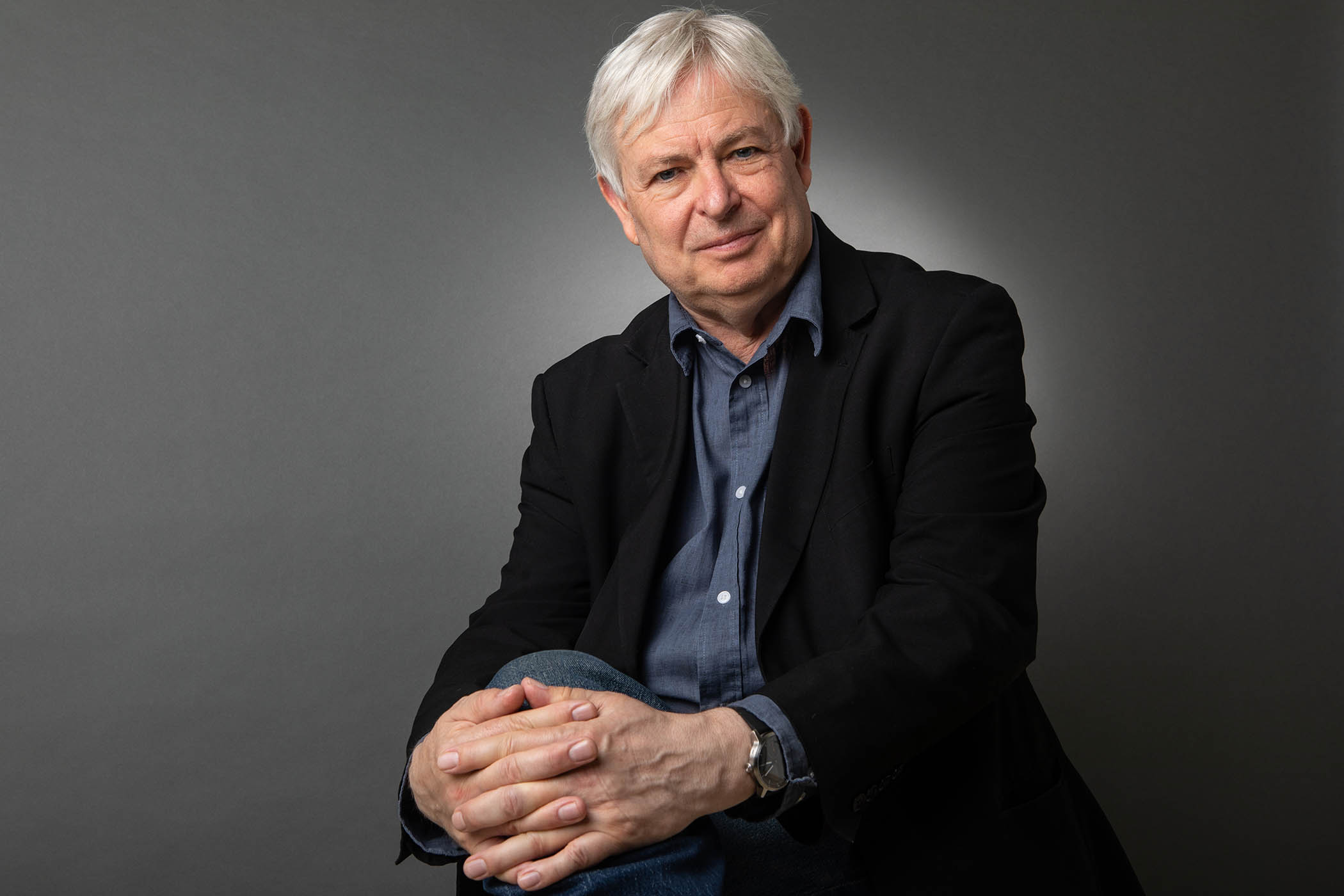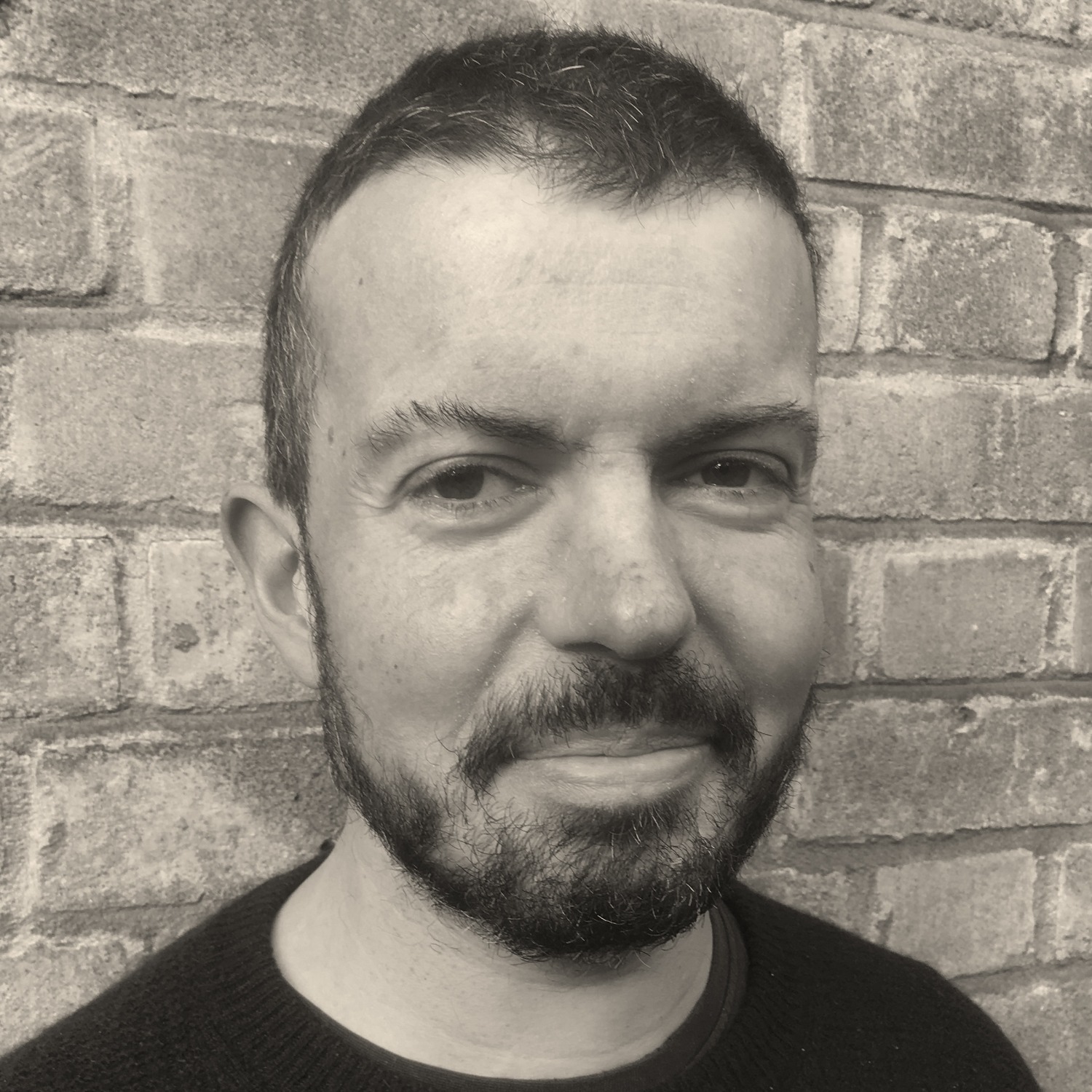Portrait by Antonio Olmos
Jonathan Coe, 64, grew up in Birmingham and lives in London. His 15 novels include: What a Carve Up! (1994), a satire of Britain under Margaret Thatcher; The House of Sleep (1997), which was awarded the French Prix Médicis Étranger; and his Brexit-era family saga Middle England, which won the 2019 Costa novel award. His latest book, The Proof of My Innocence, now out in paperback, is a metafictional comic murder mystery set during the reign of Liz Truss.
What inspired this novel?
Encountering the “cosy crime” label for the first time – in a French bookshop – and wondering what it said about Britain that this cultural phenomenon seemed to have travelled abroad. I thought it would be a nice bit of escapism to write a cosy crime pastiche, but that went out the window when I decided it would be a mystery about the far right.
You share the same publisher as Richard Osman...
I do, thankfully – he’s paying my advances. He wasn’t particularly in my mind and I wouldn’t make a qualitative distinction between cosy crime and literary fiction or any other genre, anyway; those value judgments, which as a Leavisite student at Cambridge in the early 1980s I was so confident about, don’t seem to apply any more. I don’t know whether what I write actually is literary fiction, in any case: there’s a slightly vulgar populist streak in my novels which I’m quite attached to.
You’ve won several awards, but you’ve never once been nominated for the Booker.
I do feel I’ve been unlucky to publish 15 novels and never even get on the longlist, but it’s not really something I think about any more. I found judging it [in 1996] very uncomfortable and haven’t really judged literary prizes since. You’re looking for reasons to exclude books. Flawed novels tend not to make the cut, but as a reader, many of my favourite novels are deeply flawed. Obviously, it’s a great achievement to write a flawless novel; I’ve certainly never managed it.
What makes you keep writing novels about Tories?
I have a fascination with the right: it’s the “other” for me. Not making my left-liberal perspective too emphatic is a constant battle when I’m writing political novels. I’ve been trying to do that since Middle England; the whole point of that novel was to try to present the remain and leave perspectives on Brexit. I didn’t quite pull it off – I still get a lot of angry messages about that book from leavers – but I think it’s becoming more and more urgent to understand the rightwing mentality.
With The Proof of My Innocence, I’ve done the easy book, which is about how the British right operates and where its networks are. The difficult book, which I don’t know how to write yet, is about why people are so drawn towards the right, and why at this particular moment they’re very drawn towards it indeed. I haven’t found a way into that, but I don’t think you can persuade readers politically by writing fiction. I might have believed it once; I don’t any more.
The Proof of My Innocence plays formal and structural games with the reader, as your novels often do. What draws you to that?
It’s fun, isn’t it? Monty Python was huge when I was about 10 or so – I didn’t know the phrase “the fourth wall” at the time, but that’s what they were playing with, and it brought me as a viewer into a wonderful complicity. To include the reader in the knowledge of how a novel is working brings you into a closer, more intimate, ultimately more emotional relationship with it.
Each book of Henry Fielding’s Tom Jones, which I first read at about 17, is prefaced with an essay which invites you to come inside and watch the workings of his writing process – I found that absolutely captivating, and still do.
Do you think you would write The House of Sleep now?
I don’t think so. Not because I don’t stand by the book – I think it’s one of my best – but the context has changed drastically. I’m nervous of looking at it again. It’s not just that it’s about a man who has gender reassignment – it’s that he wants to become a woman in order that he can be in a relationship with a gay woman. That’s a very explosive theme these days. If I was brave enough, I could write another book on a similar theme, but I wouldn’t be able to make it so tender and gentle and unproblematic.
Is there something that you need in order to be able to write?
No, I can write anywhere. Since I was eight years old, there’s never been a time when I haven’t been writing a book or been about to start writing one. People misunderstand if they think the precondition for writing is a quiet room with a nice desk and a pleasant view: that’s no help if the idea isn’t there and the structure isn’t in place and the voice hasn’t been found. You’ll just sit looking at the nice view all day.
What impelled you to start writing a book aged eight?
I can’t remember. I think about it a lot. What puzzles me isn’t why I did it at eight – a lot of kids I knew were writing or drawing or whatever – but why I didn’t stop when I became an adolescent, when most people stop. Someone who reviewed my novel The Terrible Privacy of Maxwell Sim [2010] said: “This book was obviously written by a rather anxious person.”
Most things people say in reviews don’t stay with me, but that did, because I hadn’t thought of myself that way before. I suppose, like many people, I do have a low-level anxiety, a slight sense of not fitting into the world as comfortably as I’d like to. Writing fiction helps me calibrate that, somehow – I think that’s why I do it.
The Proof of My Innocence by Jonathan Coe is published by Penguin (£9.99). Order a copy from The Observer Shop for £8.99. Delivery charges may apply
Newsletters
Choose the newsletters you want to receive
View more
For information about how The Observer protects your data, read our Privacy Policy

